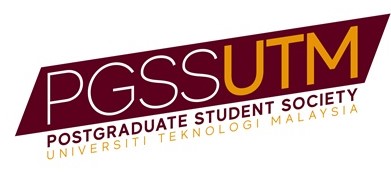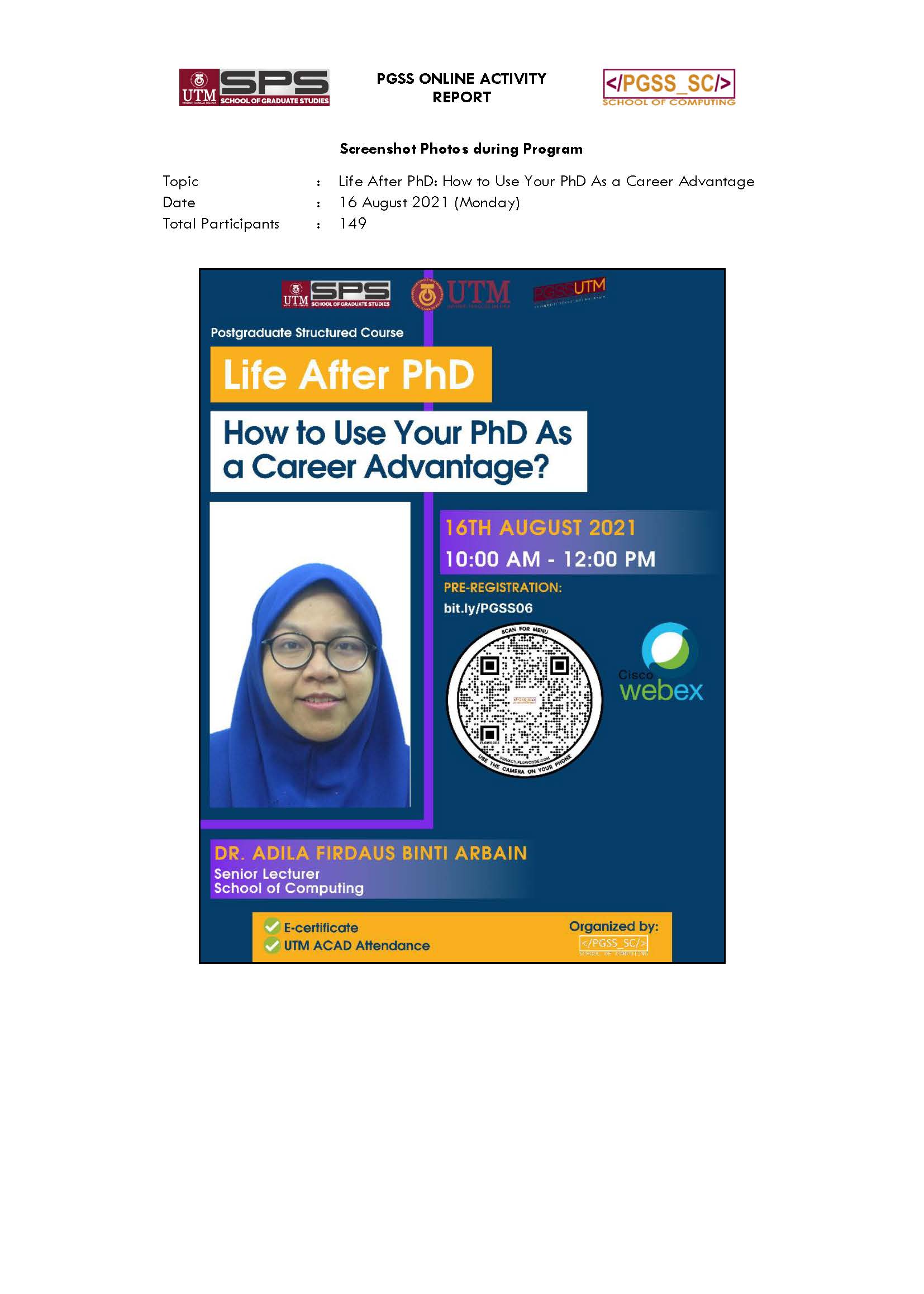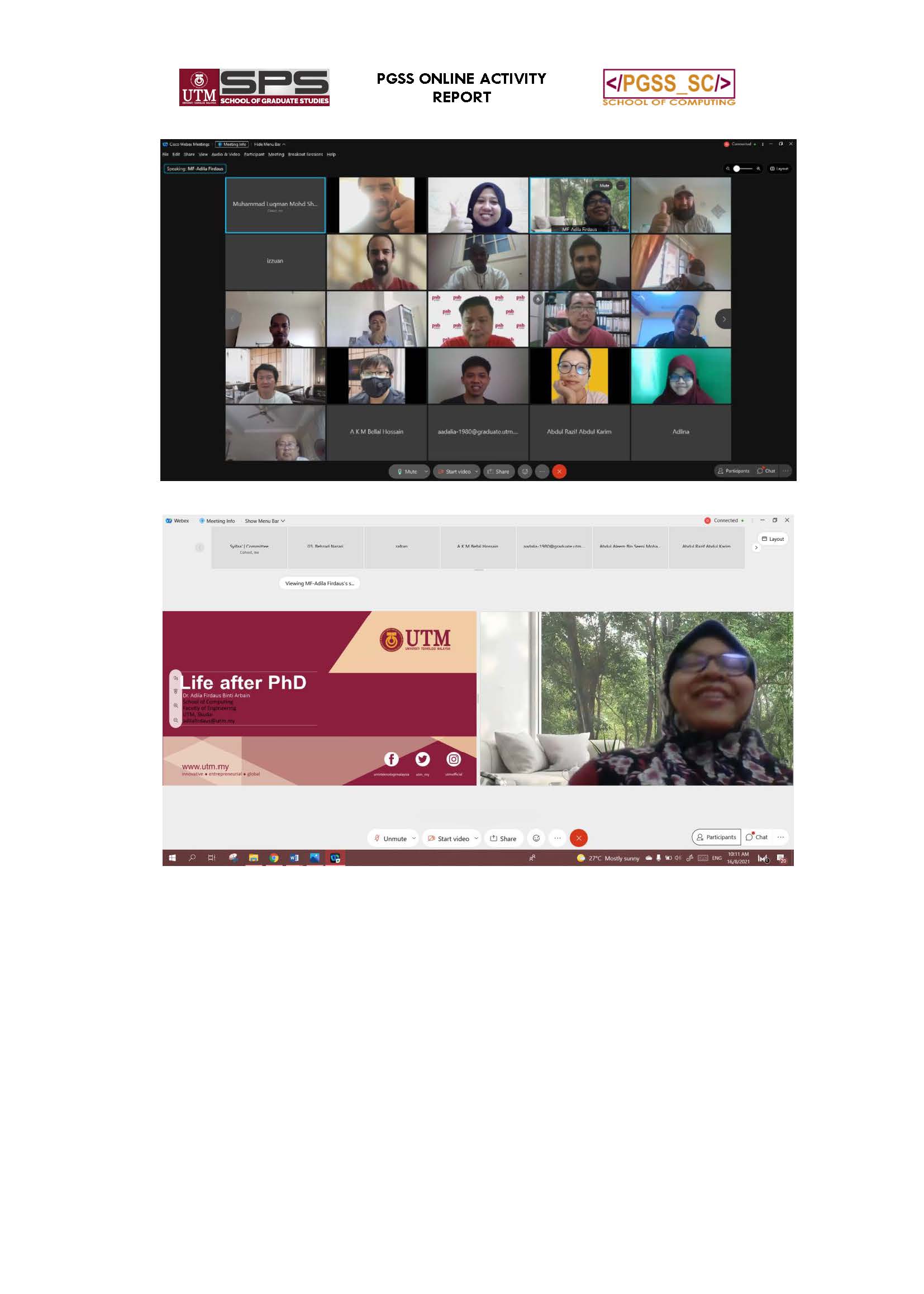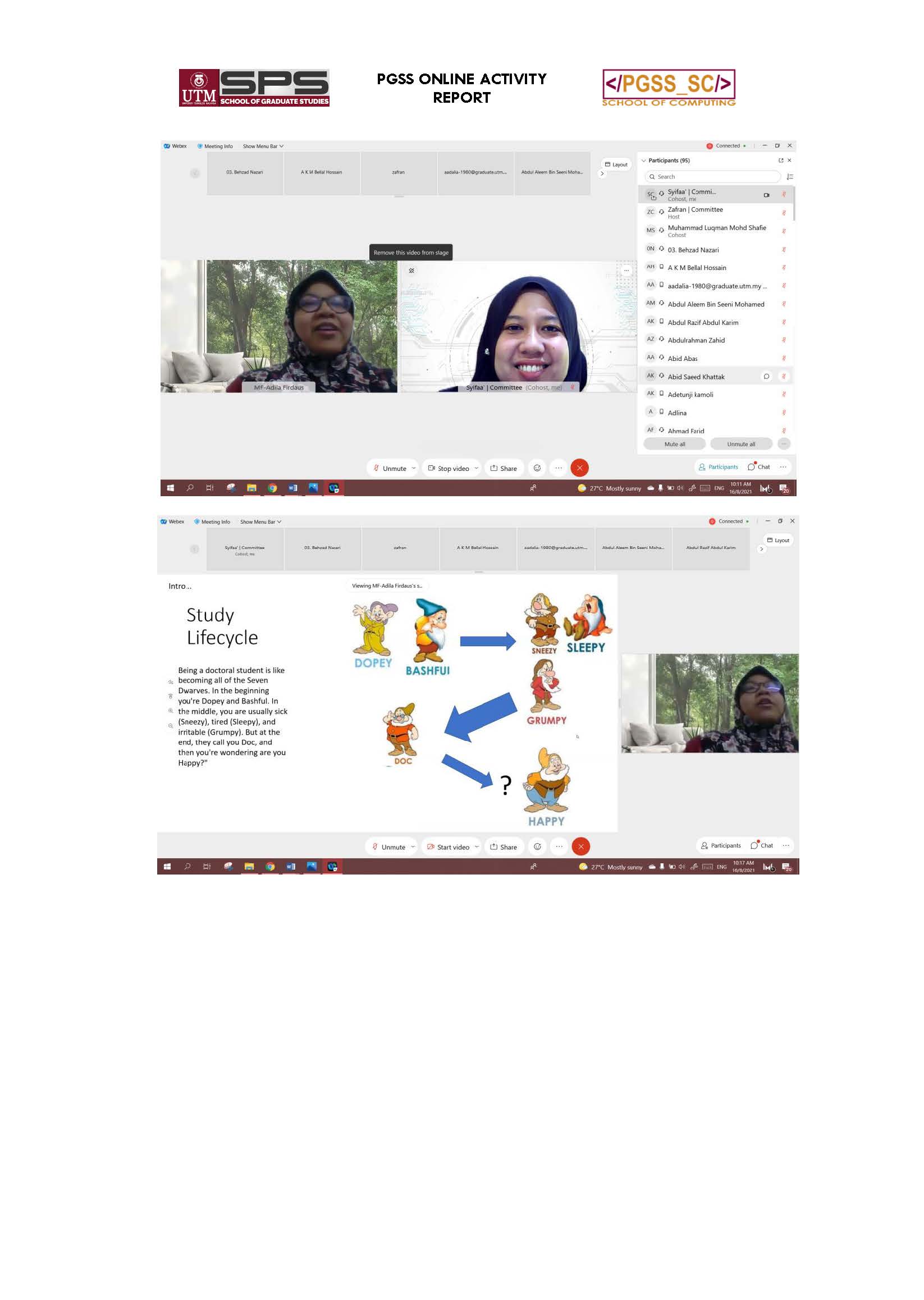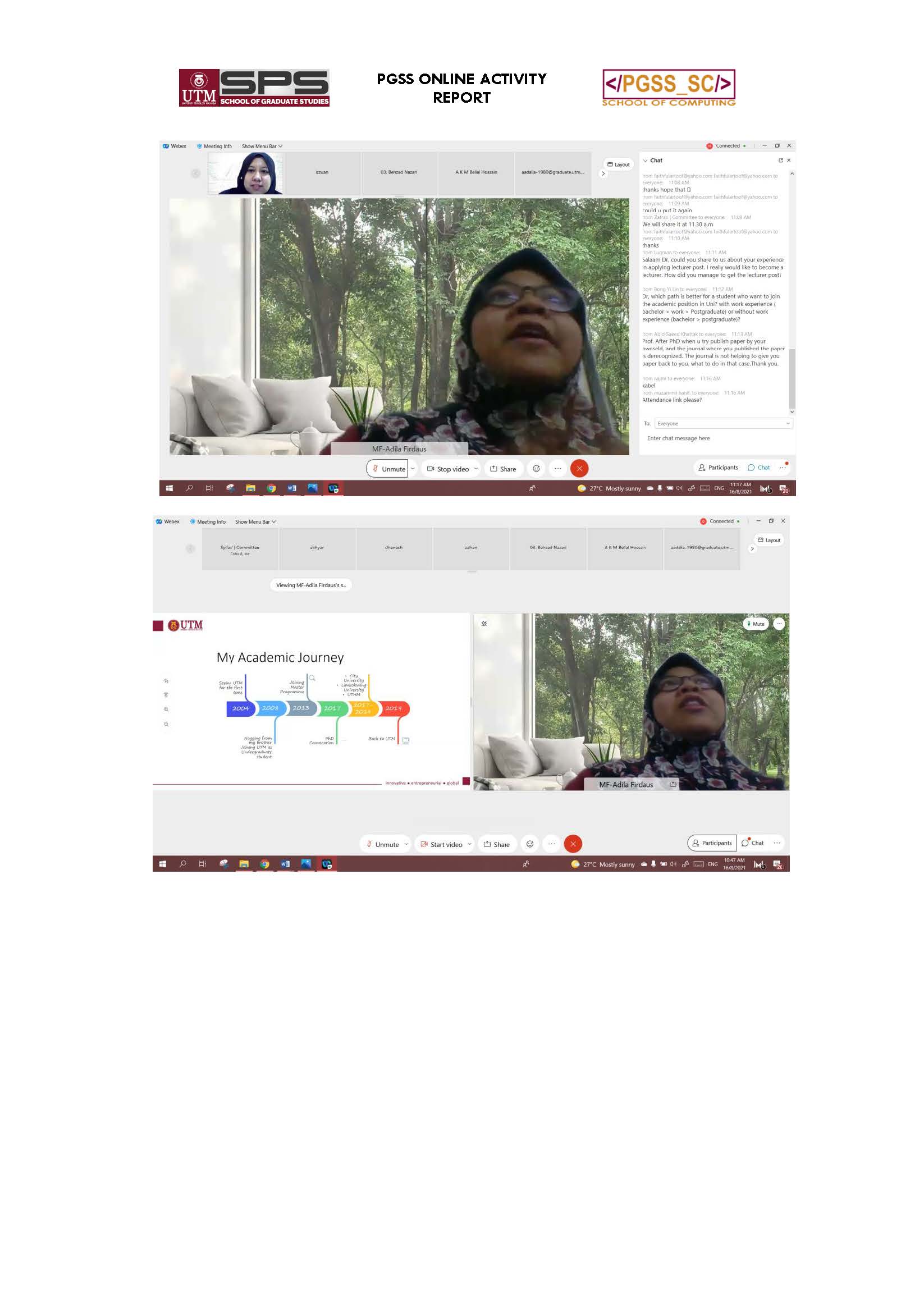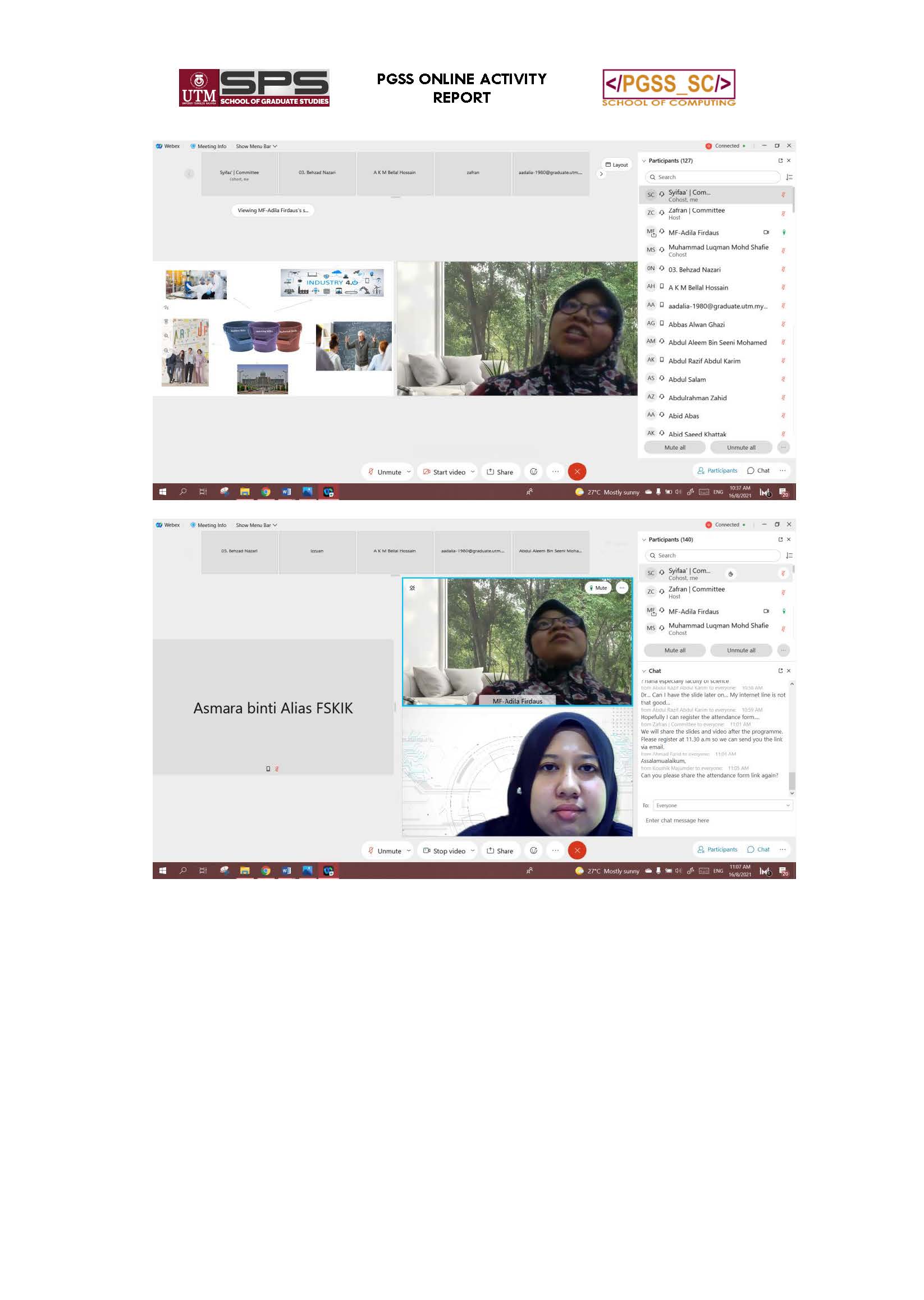On August 16st 2021, an online structured course entitled Life After PhD was organised to share how to manage and prepare for the career path after postgraduate study. The structured course started at 9.00 am and ended at 12.00 am using Cisco WebEx online conferencing platform. This course was organised by the Postgraduate Student Society School of Computing (PGSS-SC), with Asraful Syifaa’ Ahmad as the moderator.
This session was successfully held with the PGSS-SC committee’s help Muhammad Zafran Muhammad Zaly Shah, Muhamad Farhin Harun, and Muhammad Luqman Mohd Shafie. This course received 285 online registrations, and 145 participants turned up for the event. There is 62.07% PhD students, 17.93% Master degree students, 4.14% Bachelor students and the rest are unidentified. We also received participation from UTM staff. Additionally, 88.97 % is from UTM, and the rest is non-UTM.
The honourable speaker is Dr Adila Firdaus Arbain. She is currently one of the Senior Lecturers in School of Computing, Faculty of Engineering, Universiti Teknologi Malaysia (UTM). Dr Adila is one of the UTM alumni. She received her bachelor’s degree, master’s degree, and PhD in Universiti Teknologi Malaysia, specialising in software engineering. Recently, Dr Adila did receive such an incredible research grant from Gates IT Solution Sdn Bhd with a total of RM 343 460.00. The grant title is Software Testing and Software Maintenance of Johor State Legislative Assembly Management Information System. Not only that, but she is also the person in charge of another project name – A New Agility Hybrid Model for Secured IoT-Based Healthcare Platform. The speaker firstly shares her experience of planning a career at a postgraduate level, mainly as a PhD student.
A study lifecycle is like seven dwarves, which is happy and snoozing at an early stage. All the grumpy (irritable) phases to achieve a doctoral title, and at the end, what only matters is, “Are you satisfied with the outcome?”. During doing Master and PhD degree, there are some philosophical reasons why postgraduates pursue the said titles. First, it is what motivate you and provides a more straightforward path to the career path later. Graduates also need to ask yourselves what skill you are gaining during your study. It is viable to attract industrial employers out there. Graduates also need to decide when, what and how specific skill is employed during your career phase. In what area is your talent shine the most (postdoc, academic, industry and so on). Finally, we as humans need to keep praying to Allah to give us a chance to gain more knowledge to contribute to the community.
Next is a QnA session with the audience. Following are some of the QnA input and output:
1. It is possible to apply research output into the industry? – basically, it is hard because although the postgraduate study is deep, it is narrow to a specific sub- field. You must be a broad person and need to equip yourself with various skills (including soft skill) related to you filed.
2. Does publication is essential when jumped into academic employment, quality or quantity? – high-quality publication first if you can.
3. How did you go for the lecturer post? – aside form need to require a PhD, check needs for an area in various universities. You also need a good network.
4. Is there a job available for PhD holder both in lecturer and industry? – You need to prepare yourself and keep working hard although after your PhD study. The best job eventually will come to you. For industry, you need to match up your research skills with industry skills, such as documentation, networking, or management.
5. Tips to keep self-motivated in to do research in this pandemic. – Keep finding opportunities in every problem. Each generation has its own issues. We can learn from the previous generation to find the best way to keep ourselves
motivated.
6. Industrial PhD vs conventional PhD – industrial PhD need at least 2 years in the industry. Industrial PhD closely resembles an industrial problem that can be the ticket to industrial exposure during your study.
The session ended at 12 pm. There are no problem occurs during the whole sharing session. Although there is a lot of question from the audience that does not issue to the speaker because of the time constraint. However, all skipped questions will be answered off-screen by the speaker and shared with all participants registered during the session. The session ended with a photo session of all participants together with the speaker.
